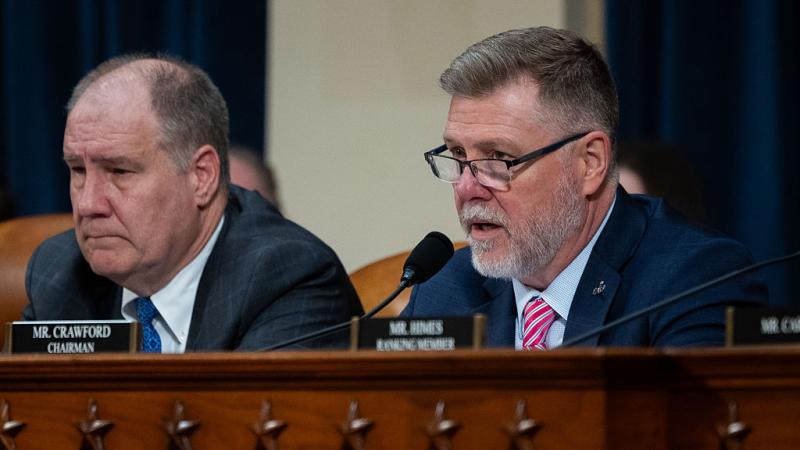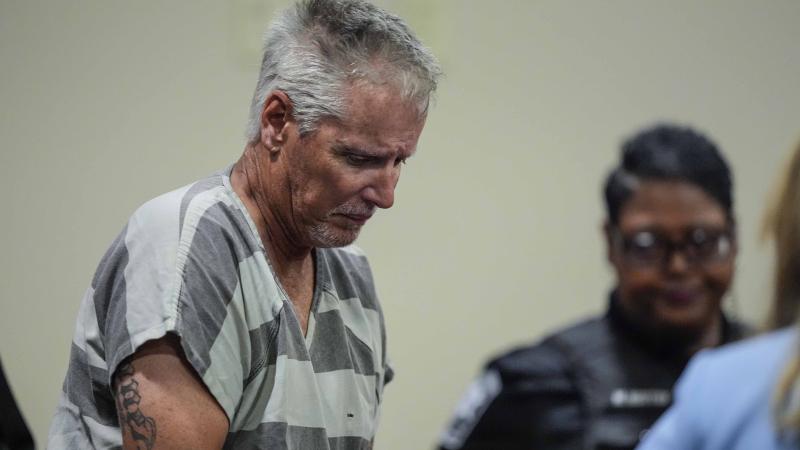FDA boss: Some studies 'suggest a benefit' to hydroxychloroquine, docs can prescribe off label
Commissioner Stephen Hahn says doctors can still prescribe the drug off-label for coronavirus patients.
Food and Drug Administration Commissioner Stephen Hahn says there are some medical observational studies that "suggest a benefit" in using the drug hydroxychloroquine for treating COVID-19 but that clinical, randomized trials do not show a benefit.
In spite of Dr. Hahn's nuanced description of hydroxychloroquine COVID-19 data, however, the agency did not respond to an inquiry from Just the News about whether, in light of this statement, the FDA would withdraw its guidance stating that using hydroxychloroquine for the coronavirus should be avoided "outside of the hospital setting or a clinical trial."
"So the FDA looks at all what we call 'the totality of data,'" Hahn said in a Tuesday morning radio interview with Florida radio host Drew Steele. "There are observational studies that suggest a benefit. There are five randomized trials that did not show a benefit to hydroxychloroquine, both in the prophylactic setting and in the treatment — both early and late."
However, Hahn, both in his Tuesday radio interview and in prior public statements, said the FDA "does not regulate the practice of medicine" and thus leaves doctors the option to prescribe hydroxychloroquine to treat COVID-19 in an "off-label" use.
"We believe that decision about whether a doctor writes for hydroxychloroquine, for a patient with COVID, is completely in the realm of the doctor-patient relationship," Hahn said Tuesday, "with the doctor understanding what the data show, their comfort level with this drug, and also the other medications and other illnesses that a person has."
The FDA said in an earlier statement, "Prescribing a product for uses not specifically included in the official labeling is common in the practice of medicine. In oncology and mental health, many patients are treated this way."
In June, the FDA revoked its emergency use authorization (EUA) to use hydroxychloroquine and chloroquine to treat COVID-19 in certain hospitalized patients when a clinical trial is unavailable. The agency said it "made this determination based on recent results from a large, randomized clinical trial in hospitalized patients that found these medicines showed no benefit for decreasing the likelihood of death or speeding recovery."
Hydroxychloroquine has been used for decades legally in the United States. It is commonly prescribed, and FDA-approved, to treat malaria, lupus, and rheumatoid arthritis.
Dr. Hahn's analysis of data on hydroxychloroquine appears broader in scope than that of Dr. Anthony Fauci, a fellow member of the White House coronavirus task force.
"I go along with the FDA," Fauci said Tuesday on ABC's "Good Morning America." "The overwhelming prevailing clinical trials that have looked at the efficacy of hydroxychloroquine have indicated that it is not effective in coronavirus disease.”
An FDA spokeswoman declined to comment on whether Hahn disagreed with Fauci's characterization of hydroxychloroquine.
In March, the U.S. Department of Health and Human Services accepted 30 million doses of hydroxychloroquine sulfate donated by Sandoz, the Novartis generics and biosimilars division.
"Since the hydroxychloroquine product is FDA-approved for other uses with a prescription, the donation agreements also allowed for it to be distributed for clinical trials and to the commercial market for use in the outpatient setting, if appropriate," Dr. Hahn said in a statement posted on the FDA's Website.
Listen to Dr. Hahn in the Tuesday radio interview below:
















